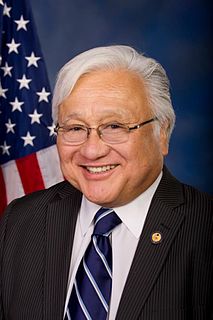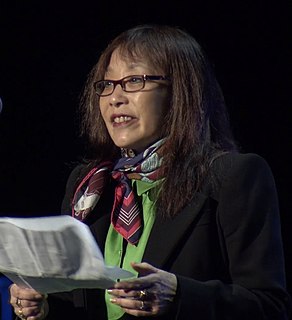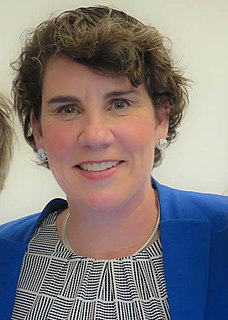A Quote by Michael M. Honda
My own family and thousands of other Japanese Americans were interned during World War II. It took our nation over 40 years to apologize
Related Quotes
However, there is a fundamental difference between the issue related to Japan's history and our negotiations with China. What is it all about? The Japanese issue resulted from World War II and is stipulated in the international instruments on the outcomes of World War II, while our discussions on border issues with our Chinese counterparts have nothing to do with World War II or any other military conflicts. This is the first, or rather, I should say, the second point.
I'm sort of optimistic about what we could do, but I'm very pessimistic about what we will do. I can't tell you that Al Gore's 10-year plan is impossible. I'm old enough to remember the Second World War - if we had a World War II-type mobilization, we might accomplish Gore's plan. In 1940 we were making tens of thousands of automobiles, and in 1941 we were making tens of thousands of airplanes. We mobilized as a nation. If we get that kind of mobilization as a nation or globally, then we could solve a lot of these problems.
I think in many ways, the Spanish Civil War was the first battle of World War II. After all, where else in the world at this point did you have Americans in uniform who were being bombed by Nazi planes four years before the U.S. entered World War II? Hitler and Mussolini jumped in on the side of Francisco Franco and his Spanish nationalists, sent them vast amounts of military aid, airplanes, tanks - and Mussolini sent 80,000 ground troops as well - because they wanted a sympathetic ally in power. So I think it really was the opening act of World War II.
I was born just after the end of World War II, and with my friends in our little suburban backyards in New Jersey, we used to play war a lot. I don't know if boys still play war, they probably do, but we were thrusting ourselves into recent history and we were always fighting either the Nazis or the Japanese.
Saving Italy is an astonishing account of a little known American effort to save Italy’s vast store of priceless monuments and art during World War II. While American warriors were fighting the length of the country, other Americans were courageously working alongside to preserve the irreplaceable best of Italy’s culture. Read it and be proud of those who were on their own front lines of a cruel war.

































